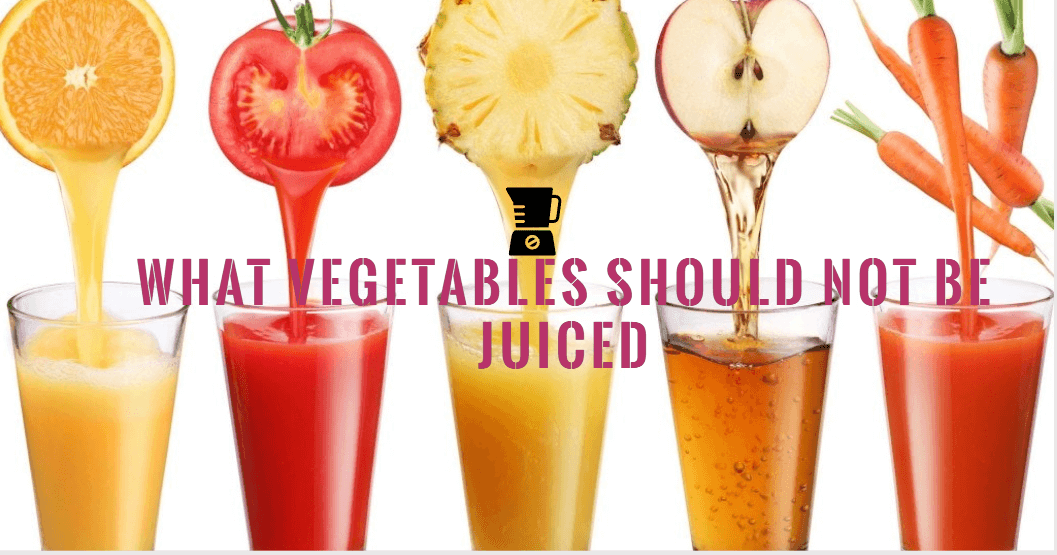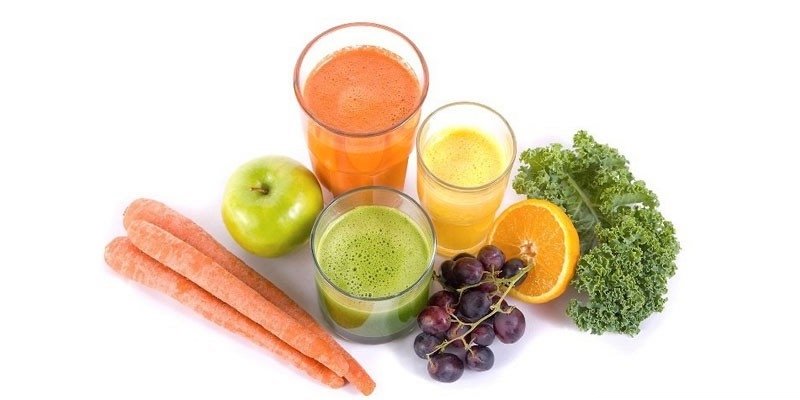
The Rise of Vegetable Juicing
As health-conscious individuals continue to explore ways to enhance their well-being, vegetable juicing has gained significant popularity in recent years. This practice involves extracting the natural juices from various vegetables to create a concentrated, nutrient-rich beverage. However, not all vegetables are created equal when it comes to juicing. In this article, we will delve into the world of vegetable juicing, specifically focusing on which vegetables should not be juiced and why.
Benefits of Vegetable Juicing: A Nutritional Powerhouse
Vegetable juicing is a powerful method to unlock the nutritional potential of various vegetables. By extracting the juice from these vibrant plants, we can access a concentrated source of vitamins, minerals, and antioxidants that are easily absorbed by our bodies. Here are some key benefits of vegetable juicing:
Increased Nutrient Intake: Juicing allows us to consume a larger quantity and variety of vegetables than we might typically eat in their whole form. This means we can access a wider range of essential nutrients that support our overall health and well-being.
Enhanced Digestion and Absorption: The juicing process breaks down the plant fibers, making the nutrients more readily available for digestion and absorption. This means our bodies can efficiently absorb and utilize the vitamins, minerals, and antioxidants present in the juice.
Improved Hydration: Vegetable juices are rich in water content, contributing to our daily hydration needs. Staying hydrated is crucial for various bodily functions, including digestion, nutrient transport, and maintaining optimal organ function.
Support for Detoxification: Many vegetables, such as leafy greens and cruciferous vegetables, contain compounds that support the body’s natural detoxification processes. Vegetable juices can help flush out toxins and promote a healthier internal environment.
Antioxidant Boost: Vegetables are packed with antioxidants that help fight free radicals and reduce oxidative stress in our bodies. Regularly consuming antioxidant-rich vegetable juices can support cellular health and reduce the risk of chronic diseases.
To further illustrate the benefits of vegetable juicing, here is an overview table highlighting the nutrients and advantages of popular juicing vegetables:
| Vegetable | Key Nutrients | Benefits |
|---|---|---|
| Spinach | Iron, Vitamin A, Vitamin C | Supports vision, immune function, and energy |
| Carrots | Beta-carotene, Vitamin K | Promotes healthy skin, eyes, and bone health |
| Cucumbers | Hydration, Silica | Refreshing and supports healthy hair and skin |
| Kale | Calcium, Vitamin C, Antioxidants | Boosts bone health and immune function |
| Celery | Electrolytes, Digestive Support | Hydrating and aids in digestion |
| Beetroot | Antioxidants, Dietary Fiber | Supports cardiovascular health and exercise performance |
Vegetable juicing offers a convenient and effective way to incorporate these nutrient-dense vegetables into our daily routines, allowing us to maximize the benefits they provide. Remember to balance juicing with a well-rounded diet that includes a variety of whole fruits and vegetables for optimal nutrition.
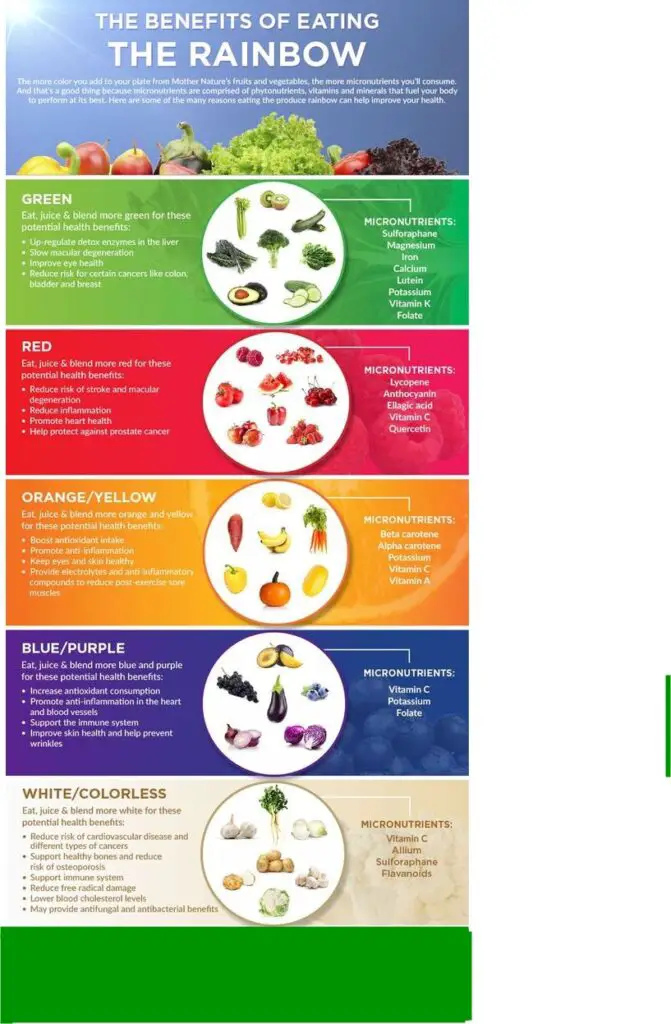
Vegetables to Avoid Juicing: Potential Risks and Considerations
Understanding Which Vegetables to Exclude from Your Juice Recipes
When it comes to juicing, it’s crucial to be aware of certain vegetables that are not suitable for juicing. While these vegetables may offer various health benefits when consumed in their whole form or cooked, juicing them can lead to potential risks or undesirable effects. Let’s explore the complete list of vegetables that should not be juiced:
1. Potatoes
Potatoes are high in starch content, which makes them unsuitable for juicing. Juicing potatoes can cause a rapid spike in blood sugar levels due to the concentrated nature of the juice. Additionally, potatoes may contain toxic compounds called glycoalkaloids, which are typically found in the skin and can be harmful when consumed in large quantities.
2. Sweet Potatoes
Similar to regular potatoes, sweet potatoes are starchy and can cause a rapid increase in blood sugar levels when juiced. Furthermore, the skin of sweet potatoes may contain toxins and should be avoided when juicing.
3. Avocado
Avocados are a wonderful source of healthy fats and are best enjoyed in their whole form or added to dishes. However, they are not suitable for juicing due to their high fat content. Juicing avocados can lead to an unappetizing texture and result in clogging or damage to your juicer.
4. Eggplant
While eggplants offer various health benefits when cooked or incorporated into meals, they are not recommended for juicing. Eggplants have a bitter taste and contain certain compounds that may cause digestive discomfort when consumed raw or in juice form.
5. Rhubarb
Rhubarb is a unique vegetable with a tart taste often used in pies and desserts. However, it is important to note that the leaves of the rhubarb plant are toxic and should never be juiced. Only the edible stalks of rhubarb should be consumed or used for juicing.
6. Garlic and Onions
Garlic and onions are flavorful additions to many culinary dishes and offer numerous health benefits. However, their potent taste and strong odor make them unsuitable for juicing. Additionally, raw garlic and onions may cause digestive issues for some individuals.
7. Cabbage Family Vegetables
Vegetables belonging to the cabbage family, such as cabbage, Brussels sprouts, kale, and broccoli, are highly nutritious when cooked or consumed in salads. However, juicing these vegetables in large quantities can lead to bloating, gas, and digestive discomfort due to their high fiber content.
8. Spinach and Swiss Chard
Spinach and Swiss chard are nutrient-rich leafy greens that provide an array of vitamins and minerals. However, when juiced in excessive amounts, these greens can contain oxalic acid, which may interfere with calcium absorption and contribute to the formation of kidney stones in susceptible individuals.
9. Beets
Beets are a vibrant and nutritious vegetable often used in juices for their rich color and potential health benefits. However, their strong pigmentation can cause temporary discoloration of urine and stools. It’s important to consume beet juice in moderation and consider diluting it with other juices or water.
10. Green Peas
Green peas, while packed with vitamins and fiber, are not typically juiced due to their starchy nature. Juicing green peas may result in a thick and less appealing juice consistency. It is best to enjoy them as a tasty addition to salads, soups, or side dishes
Lorem ipsum dolor sit amet, consectetur adipiscing elit. Ut elit tellus, luctus nec ullamcorper mattis, pulvinar dapibus leo.

THE BEST FRUITS AND VEGETABLES FOR JUICING
Vegetables Suitable for Juicing: Maximizing Health Benefits
Discover the Most Nutrient-Dense Vegetables for Your Juice Creations
While some vegetables should be avoided when it comes to juicing, there is a vast array of nutrient-dense options that are perfect for creating delicious and health-enhancing juices. These vegetables provide an abundance of vitamins, minerals, antioxidants, and phytonutrients. Let’s explore the best fruits and vegetables for juicing:
1. Leafy Greens
Leafy greens, such as kale, spinach, Swiss chard, and romaine lettuce, are excellent choices for juicing. They are packed with essential nutrients like vitamin A, vitamin C, iron, and calcium. Leafy greens also offer a natural sweetness to juices and can be easily combined with other fruits and vegetables to create flavorful blends.
2. Cucumbers
Cucumbers are hydrating and refreshing, making them a popular choice for juicing. They have a high water content, which contributes to the juiciness of the final product. Cucumbers also provide a good amount of vitamin K and silica, which promotes healthy skin and strong hair.
3. Celery
Celery is a versatile vegetable that adds a crisp and refreshing flavor to juices. It is an excellent source of vitamins A, K, and C, as well as antioxidants and electrolytes. Celery juice has gained popularity for its potential health benefits, including promoting hydration, digestion, and overall detoxification.
4. Carrots
Carrots are well-known for their rich content of beta-carotene, which the body converts into vitamin A. Juicing carrots not only provides a natural sweetness but also supports healthy vision, skin, and immune function. Carrot juice can be combined with other vegetables and fruits for a delightful and nutritious blend.
5. Bell Peppers
Bell peppers come in various vibrant colors and add a delightful taste and crunch to juices. They are an excellent source of vitamin C and provide antioxidants that support immune health and promote collagen production. Including bell peppers in your juice recipes can bring a burst of flavor and nutrition.
6. Tomatoes
Tomatoes are not only delicious but also offer a range of health benefits. They are packed with lycopene, a powerful antioxidant known for its potential to reduce the risk of certain cancers. Tomato juice can be enjoyed on its own or combined with other vegetables to create flavorful and nutritious concoctions.
7. Ginger
While technically not a vegetable, ginger is a popular ingredient to add to vegetable juices for its unique flavor and potential health benefits. Ginger provides a natural zing to juices and is known for its anti-inflammatory and digestive properties. A small piece of ginger can go a long way in enhancing the taste and health benefits of your juice.
8. Turmeric
Similar to ginger, turmeric is a potent root with anti-inflammatory properties. It contains curcumin, a compound known for its potential to support joint health and reduce inflammation in the body. Adding a small amount of turmeric to your vegetable juice can provide an earthy flavor and an extra boost of wellness.
9. Spinach
Spinach deserves a special mention for its versatility and exceptional nutritional profile. This leafy green is rich in iron, calcium, vitamin C, and vitamin K. Spinach blends well with other vegetables and fruits, adding a mild and slightly sweet taste to your juices.
10. Beets
Beets are not only on the list of vegetables to avoid juicing in large quantities but can also be a valuable
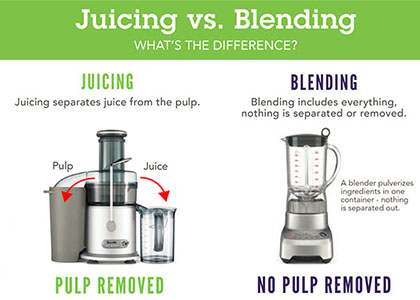
Vegetables That Should Not Be Juiced Everyday: Moderation is Key
Understanding the Importance of Balanced Juicing Habits
While juicing vegetables can be a fantastic way to boost your nutrient intake, it’s essential to practice moderation and balance in your juicing habits. Some vegetables, although beneficial in moderate amounts, may have certain characteristics or compounds that make them less suitable for everyday juicing. Let’s explore the vegetables that should not be juiced every day:
1. Kale
Kale is a nutrient powerhouse, packed with vitamins, minerals, and antioxidants. However, kale contains compounds called oxalates, which in excessive amounts, may contribute to the formation of kidney stones or interfere with the absorption of calcium. Enjoy kale in your juices a few times a week rather than daily.
2. Spinach
Spinach is another leafy green that offers an array of health benefits. However, like kale, spinach contains oxalates that can affect calcium absorption and potentially lead to kidney stone formation when consumed in large quantities. Enjoy spinach in moderation and rotate with other leafy greens.
3. Cabbage
Cabbage is a cruciferous vegetable known for its high fiber content and potential anti-cancer properties. However, consuming large amounts of raw cabbage juice every day may lead to bloating, gas, and digestive discomfort due to its high fiber content. Incorporate cabbage juice into your routine but vary your vegetable choices.
4. Broccoli
Broccoli is a nutrient-dense vegetable rich in vitamins, minerals, and phytochemicals. While it offers numerous health benefits, including antioxidant and anti-inflammatory properties, consuming large quantities of broccoli juice daily may cause digestive issues such as gas or bloating. Enjoy broccoli juice in moderation and combine it with other vegetables.
5. Beets
Beets are known for their vibrant color and potential cardiovascular health benefits. However, beet juice contains a compound called betaine, which, when consumed in excess, may cause temporary discoloration of urine and stools. Additionally, the high sugar content in beets makes it advisable to consume beet juice in moderation.
6. Sweet Potatoes
Sweet potatoes are a nutritious root vegetable with a naturally sweet flavor. While they can be juiced, it’s important to limit their consumption due to their high carbohydrate content. Regularly juicing sweet potatoes can lead to an excessive intake of carbohydrates and may affect blood sugar levels. Enjoy sweet potato juice occasionally as a treat.
7. Tomatoes
Tomatoes are a versatile ingredient that can add depth of flavor to your juices. However, consuming excessive amounts of tomato juice daily may lead to gastrointestinal issues, such as acid reflux or heartburn, due to their high acidity. Include tomatoes in your juice recipes in moderation and balance them with other vegetables.
Remember, the key to a healthy juicing routine is to vary your vegetable choices, rotate them throughout the week, and listen to your body’s needs. By practicing moderation and balance, you can enjoy the benefits of vegetable juicing while minimizing any potential risks or discomfort
Benefits of Vegetable Juicing: A Nutritional Powerhouse
Vegetable juicing is a powerful method to unlock the nutritional potential of various vegetables. By extracting the juice from these vibrant plants, we can access a concentrated source of vitamins, minerals, and antioxidants that are easily absorbed by our bodies. Here are some key benefits of vegetable juicing:
Increased Nutrient Intake: Juicing allows us to consume a larger quantity and variety of vegetables than we might typically eat in their whole form. This means we can access a wider range of essential nutrients that support our overall health and well-being.
Enhanced Digestion and Absorption: The juicing process breaks down the plant fibers, making the nutrients more readily available for digestion and absorption. This means our bodies can efficiently absorb and utilize the vitamins, minerals, and antioxidants present in the juice.
Improved Hydration: Vegetable juices are rich in water content, contributing to our daily hydration needs. Staying hydrated is crucial for various bodily functions, including digestion, nutrient transport, and maintaining optimal organ function.
Support for Detoxification: Many vegetables, such as leafy greens and cruciferous vegetables, contain compounds that support the body’s natural detoxification processes. Vegetable juices can help flush out toxins and promote a healthier internal environment.
Antioxidant Boost: Vegetables are packed with antioxidants that help fight free radicals and reduce oxidative stress in our bodies. Regularly consuming antioxidant-rich vegetable juices can support cellular health and reduce the risk of chronic diseases.
To further illustrate the benefits of vegetable juicing, here is an overview table highlighting the nutrients and advantages of popular juicing vegetables:
| Vegetable | Key Nutrients | Benefits |
|---|---|---|
| Spinach | Iron, Vitamin A, Vitamin C | Supports vision, immune function, and energy |
| Carrots | Beta-carotene, Vitamin K | Promotes healthy skin, eyes, and bone health |
| Cucumbers | Hydration, Silica | Refreshing and supports healthy hair and skin |
| Kale | Calcium, Vitamin C, Antioxidants | Boosts bone health and immune function |
| Celery | Electrolytes, Digestive Support | Hydrating and aids in digestion |
| Beetroot | Antioxidants, Dietary Fiber | Supports cardiovascular health and exercise performance |
Vegetable juicing offers a convenient and effective way to incorporate these nutrient-dense vegetables into our daily routines, allowing us to maximize the benefits they provide. Remember to balance juicing with a well-rounded diet that includes a variety of whole fruits and vegetables for optimal nutrition.

Vegetable juicing has gained popularity for its potential health benefits, but what does the science say? When vegetables are juiced, their fibrous components are separated, leaving behind a concentrated liquid rich in vitamins, minerals, and phytonutrients. The science behind vegetable juicing revolves around several key factors.
First, juicing increases the bioavailability of nutrients by breaking down the plant cell walls, making it easier for our bodies to absorb and utilize these vital compounds. Additionally, juicing can enhance digestion, as the extracted juice requires less effort to break down compared to whole vegetables.
Moreover, vegetable juices are often packed with antioxidants that help combat oxidative stress and inflammation in the body. These antioxidants have been linked to a reduced risk of chronic diseases, including cardiovascular disease and certain types of cancer.
It’s important to note that while juicing can provide a concentrated source of nutrients, it also removes the beneficial dietary fiber present in whole vegetables. To maintain a balanced diet, it’s recommended to incorporate both whole vegetables and vegetable juices into your routine.
Overall, the science supports the idea that vegetable juicing can be a valuable way to increase nutrient intake and potentially support overall health and well-being. However, it’s crucial to consult with a healthcare professional and maintain a balanced approach to ensure you’re meeting all of your nutritional needs.
| Vegetable | Key Nutrients | Health Benefits |
|---|---|---|
| Leafy Greens | Vitamin A, Vitamin C, Iron | Supports immune function, vision, and energy levels |
| Cucumbers | Hydration, Silica | Promotes skin and hair health, refreshing |
| Celery | Vitamins A, K, C | Supports hydration, digestion, and detoxification |
| Carrots | Beta-carotene, Vitamin A | Enhances vision, skin health, and immune function |
| Bell Peppers | Vitamin C, Antioxidants | Supports immune health and collagen production |
| Tomatoes | Lycopene, Vitamin C | Potential anti-cancer properties, antioxidant benefits |
| Ginger | Anti-inflammatory | Aids digestion, anti-inflammatory properties |
| Turmeric | Curcumin | Supports joint health, reduces inflammation |
| Spinach | Iron, Calcium, Vitamin C | Boosts iron levels, supports bone health |
| Beets | Antioxidants, Dietary Fiber | Promotes cardiovascular health and exercise performance |
This table highlights the key nutrients and health benefits associated with various vegetables suitable for juicing. Incorporating these vegetables into your juicing routine can provide a wide range of essential vitamins, minerals, and antioxidants that support overall health and well-being. Remember to experiment with different combinations and ratios to find the flavors and nutrient profiles that suit your preferences and needs.
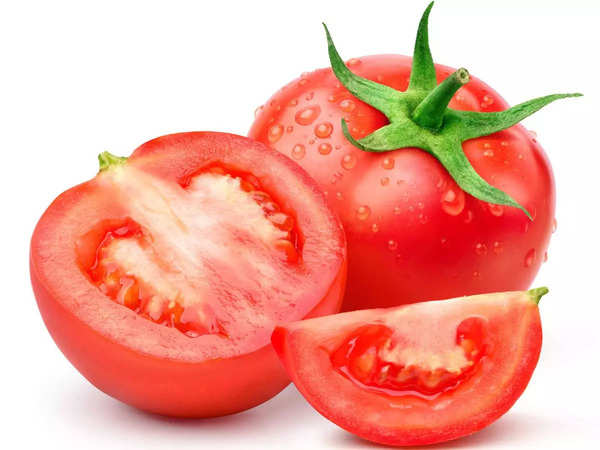

| Vegetable | Potential Risks and Considerations |
|---|---|
| Kale | Contains oxalates that may contribute to kidney stone formation in excessive amounts |
| Spinach | High oxalate content may interfere with calcium absorption and increase stone formation |
| Cabbage | High fiber content can cause bloating and gas when consumed in large quantities |
| Broccoli | Large amounts may cause digestive issues like gas and bloating |
| Beets | Betaine content may temporarily discolor urine and stools, high sugar content in excess |
| Sweet Potatoes | High carbohydrate content may impact blood sugar levels when consumed excessively |
| Tomatoes | High acidity can cause acid reflux or heartburn when consumed in excess |
This table outlines the vegetables that should be avoided or consumed in moderation when juicing due to potential risks and considerations. While these vegetables can still be included in your diet, it’s important to be mindful of portion sizes and balance them with other vegetables to minimize any potential adverse effects. As with any dietary changes, it’s advisable to consult with a healthcare professional or registered dietitian to ensure your juicing routine aligns with your individual health needs and goals.
Here is a table outlining the approximate calorie content in 100 grams (g) and a standard glass (250 milliliters, ml) of various fresh and processed fruit juices:
| Juice | Calories in 100 g (kcal) | Calories in a glass (250 ml, kcal) |
|---|---|---|
| Fresh (Natural) | ||
| Apple | 46 | 115 |
| Orange | 43 | 107.5 |
| Tomato | 18 | 45 |
| Carrot | 41 | 102.5 |
| Pineapple | 50 | 125 |
| Grape | 60 | 150 |
| Peaches | 39 | 97.5 |
| Cherries | 50 | 125 |
| Grapefruit | 32 | 80 |
Incorporating vegetable juicing into your lifestyle can be a powerful way to boost your nutrient intake and support your overall health. By harnessing the concentrated vitamins, minerals, and antioxidants found in vegetables, you can nourish your body with essential compounds that promote well-being.
However, it’s important to strike a balance when it comes to vegetable juicing. While certain vegetables offer immense benefits, others may pose potential risks or side effects when consumed in excess. By being aware of the vegetables to avoid or limit in juicing, you can make informed choices and ensure a well-rounded approach to your nutrition.
Remember to vary your vegetable choices, rotate them throughout the week, and consider incorporating both whole vegetables and vegetable juices into your diet. This way, you can enjoy the benefits of juicing while still reaping the advantages of dietary fiber from whole vegetables.
As with any dietary changes, it’s recommended to consult with a healthcare professional or registered dietitian to personalize your juicing routine based on your specific needs, health conditions, and goals. They can provide valuable guidance and ensure that your juicing habits align with a balanced and nutritious diet.
So, raise a glass to the vibrant world of vegetable juicing, savor the flavors, and embrace the health-enhancing benefits as you journey towards optimal well-being. Cheers to a balanced and nourishing approach to juicing and a healthier you!
